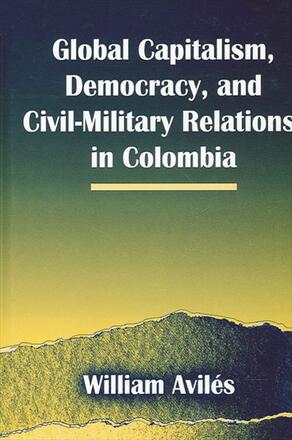
Global Capitalism, Democracy, and Civil-Military Relations in Colombia
Alternative formats available from:
Explores the connections between globalization and democratization in Colombia.
Description
Through the lens of global capitalism theory, William Avilés examines democratization and civil-military relations in Colombia to explain how social and international forces led to the ostensibly contradictory outcome of democratic and economic reform coinciding with political repression. Focusing on the administrations in power from 1990 to the present, Avilés argues that the reduction in the institutional powers of the military within the state reflected changes in the structure of the global economy, the emergence of globalizing technocrats and politicians, and shifts in U. S. foreign policy strategies toward "democracy promotion. " These same factors explain Colombia's establishment of a low-intensity democracy—a structure of elite rule in which the strategies of coercion (state and para-state repression) and consensus (competitive elections, civilian control over the military) maintain control and legitimacy. In the age of capitalist globalization, a low-intensity democracy is most concomitant with neoliberalism, establishing the political and economic environment most suitable to the investments of transnational corporations.
William Avilés is Assistant Professor of Political Science at the University of Nebraska at Kearney.
Reviews
"This book … offers an important new interpretation of political developments in Colombia over the last two decades. " — International Affairs
"Avilés has provided us with important insights and most of all reminded us of this important interrogation of democracy and its supposed friends. " — Bulletin of Latin American Research
"There are many recent titles on Colombia, but this one offers something original by showing how the prevailing theoretical paradigm for democratization and civil-military relations is inadequate because it cannot explain the Colombian experience. " — William I. Robinson, author of A Theory of Global Capitalism: Production, Class, and State in a Transnational World
"Books that bring together globalization, democracy, human rights, violence, and civil-military relations and examine them within a case-study approach are almost nonexistent. This book offers an insightful analysis of the Colombian conundrum from a more holistic perspective about these issues. " — Nibaldo H. Galleguillos, McMaster University